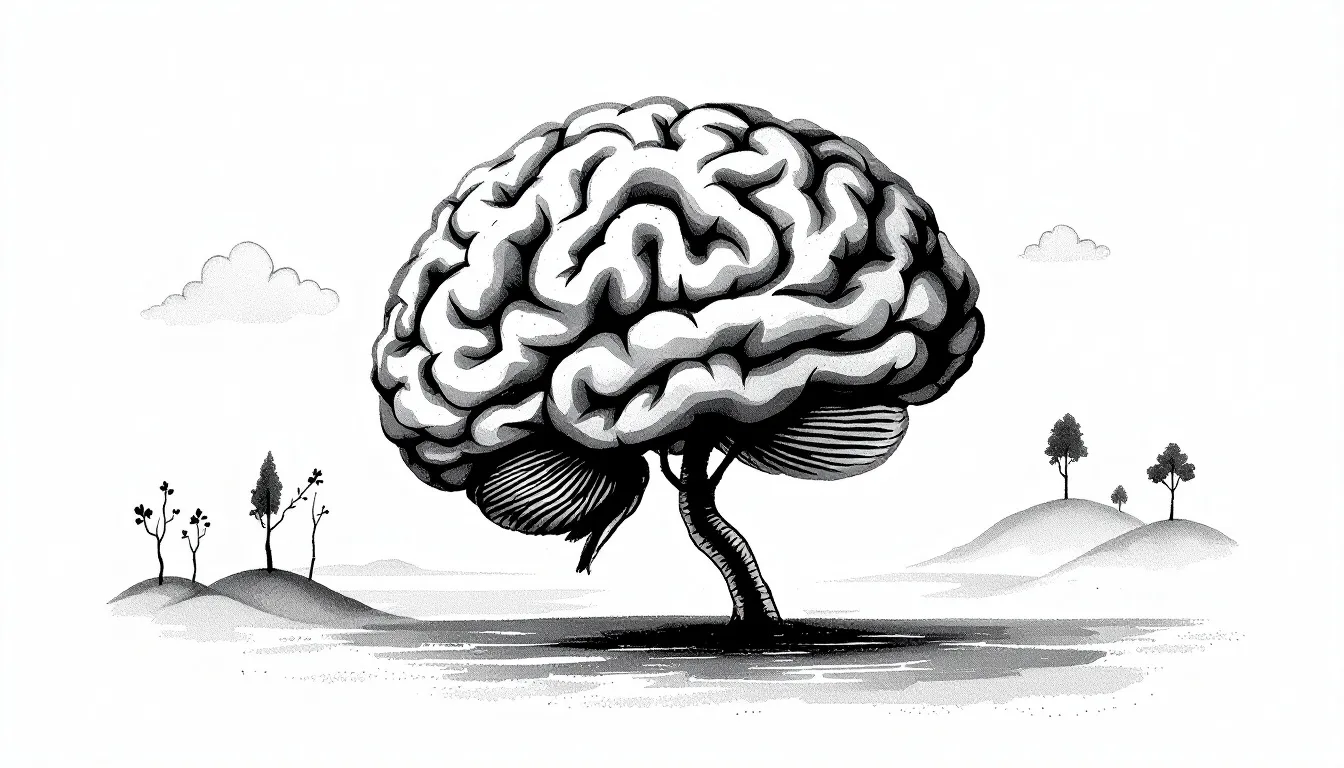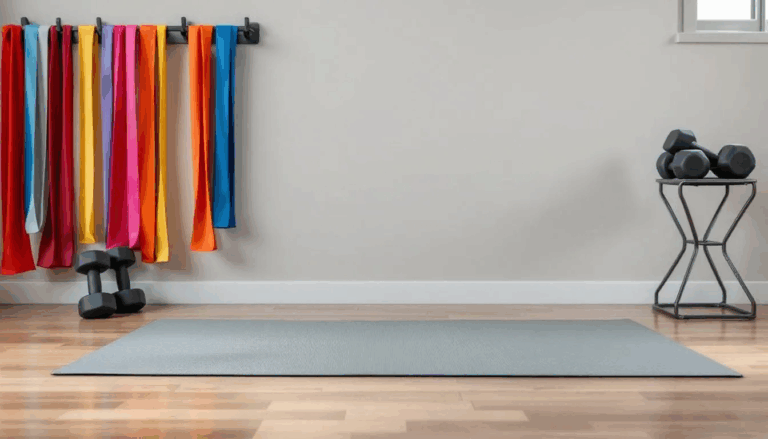The Benefits of Mindfulness for Everyday Life
Mindfulness is the practice of being fully present and aware…
Mindfulness is the practice of being fully present and aware in the moment. It can help reduce stress, improve mental health, and enhance overall well-being. This article explores how mindfulness works, its benefits, and practical techniques to incorporate it into your daily routine.
Key Takeaways
- Mindfulness enhances mental health by promoting emotional regulation, reducing anxiety, and helping individuals observe their thoughts and feelings without overwhelming reactions.
- Effective mindfulness practices include techniques such as sitting meditation, body scan meditation, and walking meditation, which cultivate present-moment awareness and improve overall well-being.
- Mindfulness has proven psychological and physical health benefits, including improved brain connectivity, reduced stress levels, and enhanced self-compassion and empathy.
Understanding Mindfulness

Mindfulness means being present and aware without becoming overly reactive. It involves paying attention to your present surroundings and sensations, absorbing the richness of each moment without judgment. This practice encourages a mindset of curiosity, openness, and acceptance toward your experiences, allowing you to pay attention to your bodily sensations and be aware of your thoughts and feelings.
Historically, mindfulness has its roots in Buddhist meditation techniques, with the term ‘sati’ denoting awareness. This ancient practice teaches that mindfulness is a quality everyone possesses but often needs guidance to access. Think of it as a muscle that strengthens with regular use, enabling you to live more fully and authentically.
When we lose mindfulness, we tend to become anxious and disconnected from our bodily experiences. Our minds wander, and we lose touch with the beauty and intricacies of the present moment. Researchers interpret mindfulness as both a mental state and a set of techniques that enhance this present-moment awareness.
In essence, mindfulness is about living in the now, embracing life’s moments with a heart full of curiosity and acceptance. This foundational understanding sets the stage for exploring how mindfulness can enhance mental health and lives.
How Mindfulness Enhances Mental Health

Mindfulness promotes emotional regulation by enhancing your awareness of emotional responses and supporting self regulation. Deep breathing exercises in mindfulness can significantly reduce anxiety and help maintain focus during challenging situations. This heightened awareness allows you to observe your emotions without getting swept away by them, fostering a more balanced and serene state of mind.
Mindfulness practices encourage individuals to cultivate awareness of the present moment, which can mitigate stress responses and reduce stress. Regular mindfulness practice leads to a deeper connection with the present, making you more resilient in the face of stress. Engaging in mindfulness exercises like body scan meditation directs attention to different physical sensations, helping to alleviate stress and tension.
Moreover, mindfulness can help you detach from negative thought patterns, allowing you to observe your thoughts without becoming overwhelmed. This detachment is particularly beneficial for those prone to anxiety or depression, as it enables a more objective perspective on distressing thoughts and emotions. Practicing mindfulness teaches you to navigate your mental landscape with greater ease and clarity.
In summary, the health benefits of mindfulness, from emotional regulation to stress reduction, are profound. By integrating mindfulness into your daily routine, you can enhance your mental health and overall well-being, which can also provide a significant benefit.
Core Mindfulness Techniques
Mindfulness meditation encompasses various forms such as:
- Sitting meditation
- Walking meditation
- Standing meditation
- Moving meditation
These techniques are designed to cultivate present-moment awareness, helping you to stay grounded in the here and now. To be effective, it is essential to incorporate both formal meditation and informal mindfulness practices into your developing routine.
Daily mindfulness can be cultivated by bringing awareness to routine tasks, transforming them into mindful practices. For instance, focusing on sensory experiences during everyday activities can enhance your appreciation of life. Engaging in these mindfulness techniques cultivates a deeper awareness of everyday experiences, enriching your daily life.
Mindfulness Meditation
Mindfulness meditation involves sitting silently and focusing on your thoughts, sounds, breathing, or body sensations while meditating. This mindfulness meditation practice sustains attention on the body, breath, sensations, or present moments, anchoring your awareness and promoting a sense of calm.
In mindfulness meditation, the focused attention technique relies on the breath. It serves as an anchor for the mind and helps maintain awareness. This method helps you to gently return your focus whenever your mind wanders, fostering a deeper connection with the present moment. Furthermore, posture practice is essential for stabilization and relaxation during meditation, ensuring that you remain comfortable and focused.
Meditation postures can be modified for individuals with injuries, ensuring that mindfulness meditation is accessible to everyone. Adapting your posture allows you to continue practicing mindfulness meditation without discomfort, maintaining your commitment to this transformative practice.
Ultimately, mindfulness meditation is about creating a quiet space within yourself, where you can retreat to find peace and clarity amidst the busyness of life. This practice not only enhances your mental health but also enriches your overall well-being.
Body Scan Meditation
Body scan meditation is a mindfulness technique that focuses on individual body parts and bodies, cultivating awareness of sensations and relieving tension. Directing your attention to different areas of your body helps identify and release physical stress, promoting relaxation and body awareness.
This practice involves slowly scanning your body from head to toe, noticing any sensations without judgment. This practice helps develop a deeper connection with your bodily experiences, enhancing your overall mindfulness practice. Body scan meditation is particularly effective in reducing anxiety and improving mental well-being.
Walking Meditation
Walking meditation is another essential mindfulness technique, where you focus on being fully present and aware of your steps, surroundings, and movements. This practice allows you to cultivate awareness in everyday life, transforming a simple walk into a profound mindfulness exercise.
Paying attention to each step, the sensation of your feet touching the ground, and the rhythm of your movements anchors you in the present moment. Walking meditation is a versatile practice that can be easily integrated into your daily routine, providing a practical way to increase mindfulness and enhance your overall well-being.
Practical Tips for Daily Mindfulness

Integrating mindfulness into your daily life doesn’t require drastic changes. You can practice mindfulness in brief intervals, such as while brushing your teeth or waiting for a bus. Bringing awareness to everyday activities like eating or commuting transforms routine tasks into opportunities for mindfulness practice.
Taking a moment to appreciate the taste of your food or the environment around you enhances awareness and reduces stress. This mindful approach to daily life not only fosters a deeper connection with the present moment but also promotes overall well-being. You may notice how this practice transforms your experience.
Start with Small Moments
Starting with small moments is an effective way to integrate mindfulness into your daily routine. Practicing mindfulness can be done in brief instances throughout the day, like during meals or while waiting in line. These small moments provide opportunities to focus on sensory experiences, such as the taste of your food or the sights and sounds around you, enhancing your mindfulness practice.
Maintaining engagement and awareness during these practices is essential for deepening your mindfulness experience. If boredom arises, approaching it with curiosity can help keep your awareness and engagement alive, transforming mundane moments into mindful ones.
Consistent Practice
Consistency is key to reaping the benefits of mindfulness. Setting a specific time for mindfulness practice helps in reinforcing awareness and presence. Establishing a regular mindfulness routine can be challenging, but incorporating it gradually into your daily schedule makes it more manageable.
If mindfulness practice becomes monotonous, diversifying your methods or engaging with others can rekindle your interest. Experiencing discomfort during extended periods of stillness can be a valuable opportunity to practice acceptance and curiosity, deepening your mindfulness practice and prompting more research.
Mindful Breathing
Mindful breathing is a powerful technique that can be practiced anywhere, making it widely accessible as a wellness intervention. This type of meditation has shown effectiveness in lowering stress, anxiety, and depression levels among participants. Taking a deep breath can enhance this practice.
Incorporating mindful breathing into your routine fosters both mental well-being and focused attention, beneficial for various aspects of life, including academic performance. Using guided media like MP3 or MP4 files can facilitate independent practice of mindfulness breathing, making it easier to integrate into daily life.
The Science Behind Mindfulness

Mindfulness practice has gained traction in modern psychological therapies, including mindfulness based therapies, as a way to improve mental health. Research indicates that mindfulness practice leads to increased cortical thickness in brain regions related to emotional regulation and sensory processing. This enhancement in brain connectivity affects regions involved in emotional processing and cognitive control, contributing to improved mental health outcomes.
Moreover, mindfulness has been linked to improved health outcomes, such as lower blood pressure and enhanced sleep quality. It has also shown to assist in managing chronic illnesses by improving quality of life. Research is ongoing to explore mindfulness’s effectiveness for conditions such as PTSD and eating disorders, suggesting a broad range of potential applications.
Mindfulness techniques can lead to changes in neurotransmitter levels, including increases in serotonin, which contribute to mood regulation. These scientific findings underscore the significant benefits of mindfulness, providing a solid foundation for its practice.
Mindfulness-Based Programs
Mindfulness-Based Stress Reduction (MBSR) has been shown to improve psychological outcomes, including reduced anxiety and depression. Founded by Jon Kabat-Zinn, MBSR is one of the most prevalent types of mindfulness programs that have been researched in various studies. These programs are designed to help individuals manage stress and enhance overall well-being through structured mindfulness practices.
Research indicates that mindfulness-based interventions (MBIs) can lead to significant reductions in stress-related symptoms among healthcare workers. However, the effectiveness of mindfulness programs for healthcare workers varies, with some studies showing modest improvements in mental health outcomes. Meta-analyses suggest that mindfulness interventions can effectively improve well-being, but the magnitude of these effects can differ significantly based on occupation.
While short-term benefits of mindfulness programs are evident, the long-term sustainability of these effects remains uncertain. Remote delivery of mindfulness courses has been identified as an effective alternative to in-person sessions, especially for busy professionals. These meditation programs have been widely adopted in various settings, including schools, prisons, hospitals, and veterans centres, highlighting their versatility and broad applicability.
Practicing mindfulness can also help individuals make healthier lifestyle choices, including dietary improvements. Additionally, mindfulness training has shown potential to enhance self-compassion and empathy in participants. These benefits underscore the value of mindfulness-based programs in promoting overall well-being.
Common Challenges in Mindfulness Practice

Practicing mindfulness can be difficult situations due to crowding thoughts and worries when trying to pause daily activities. It’s common to struggle with intrusive thoughts during mindfulness practice. Instead of trying to eliminate these thoughts, view them as fleeting mental events. This perspective helps reduce their impact.
Strong emotions may surface during practice, which can be unsettling. Acknowledging and experiencing these emotions can facilitate their release, ultimately leading to emotional healing. Practicing mindfulness can also bring up unusual sensations or feelings. Allowing these experiences to unfold naturally can help you feel a sense of feeling integrate them into your practice. This process feels essential for emotional growth.
For those with an overly busy mind, techniques such as gentle yoga or walking can be beneficial. These practices help ground your mind and manage overwhelming thoughts. Viewing thoughts as mere mental events rather than facts can aid in reducing their impact, employing techniques like decentring to meditate.
Mindfulness can help prevent relapse in depression by training individuals to stay focused on the present. Embracing these challenges and using appropriate techniques to manage them deepens your mindfulness practice and allows you to experience its full benefits.
Summary
Mindfulness, at its core, is about being present and aware without becoming overly reactive. By paying attention to your surroundings, sensations, thoughts, and feelings, you cultivate a deeper connection with the present moment. This practice, rooted in ancient Buddhist traditions, has profound benefits for mental health, including emotional regulation, stress reduction, and anxiety management.
We explored various mindfulness techniques such as mindfulness meditation, body scan meditation, and walking meditation. Each of these practices offers unique ways to enhance your awareness and presence. Practical tips for daily mindfulness, like starting with small moments, maintaining consistent practice, and incorporating mindful breathing, make it easier to integrate mindfulness into your everyday life.
Scientific evidence supports the benefits of mindfulness, showing its positive impact on brain function, mental health, and overall well-being. Mindfulness-based programs like MBSR have been widely adopted in various settings, offering structured ways to practice mindfulness and improve psychological outcomes.
While challenges in mindfulness practice are common, they can be managed with appropriate techniques and a compassionate approach. By embracing mindfulness, you can transform your daily life, fostering a sense of peace, clarity, and fulfilment. So, take a deep breath, and embark on this journey towards a mindful life.







